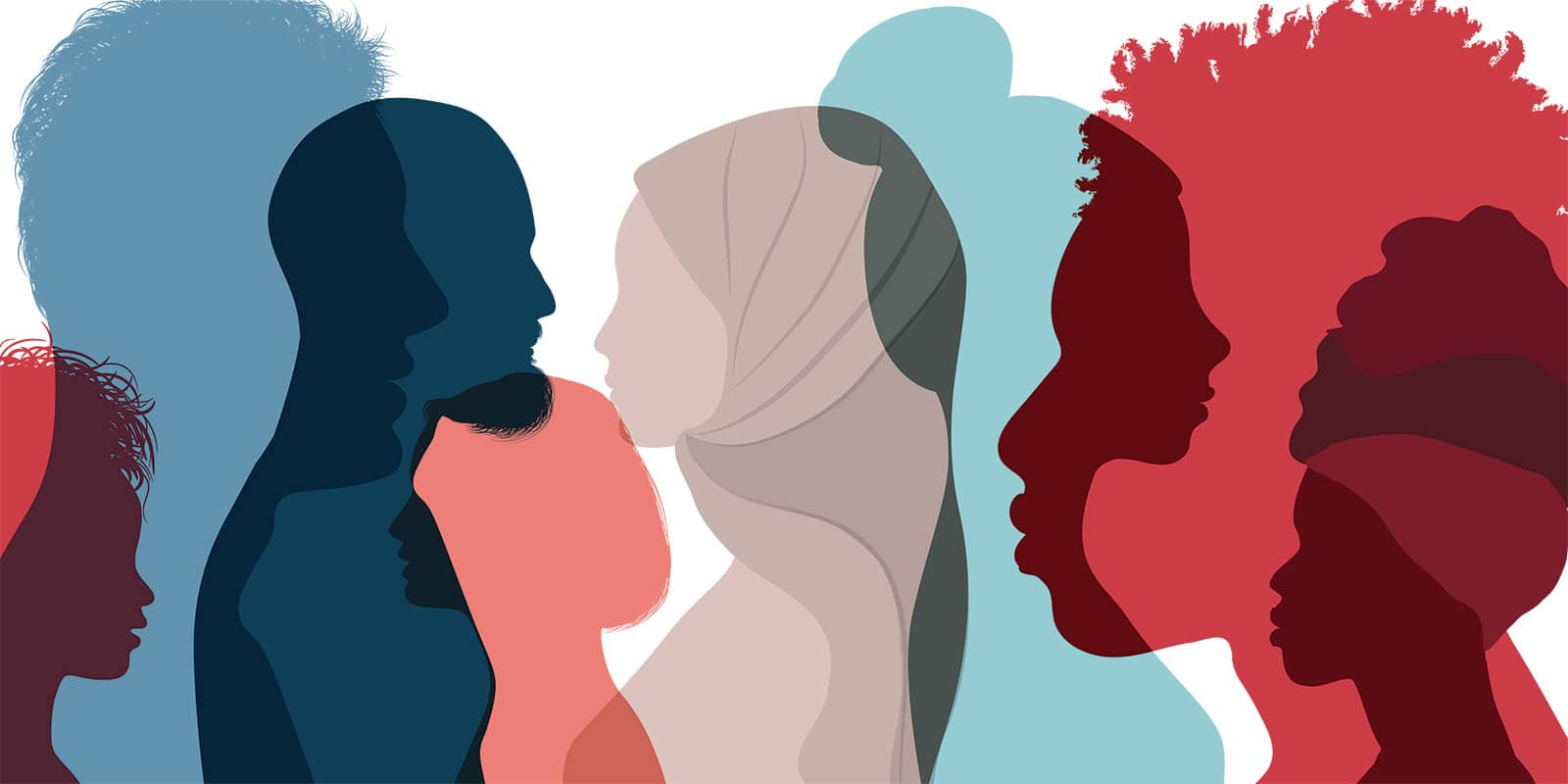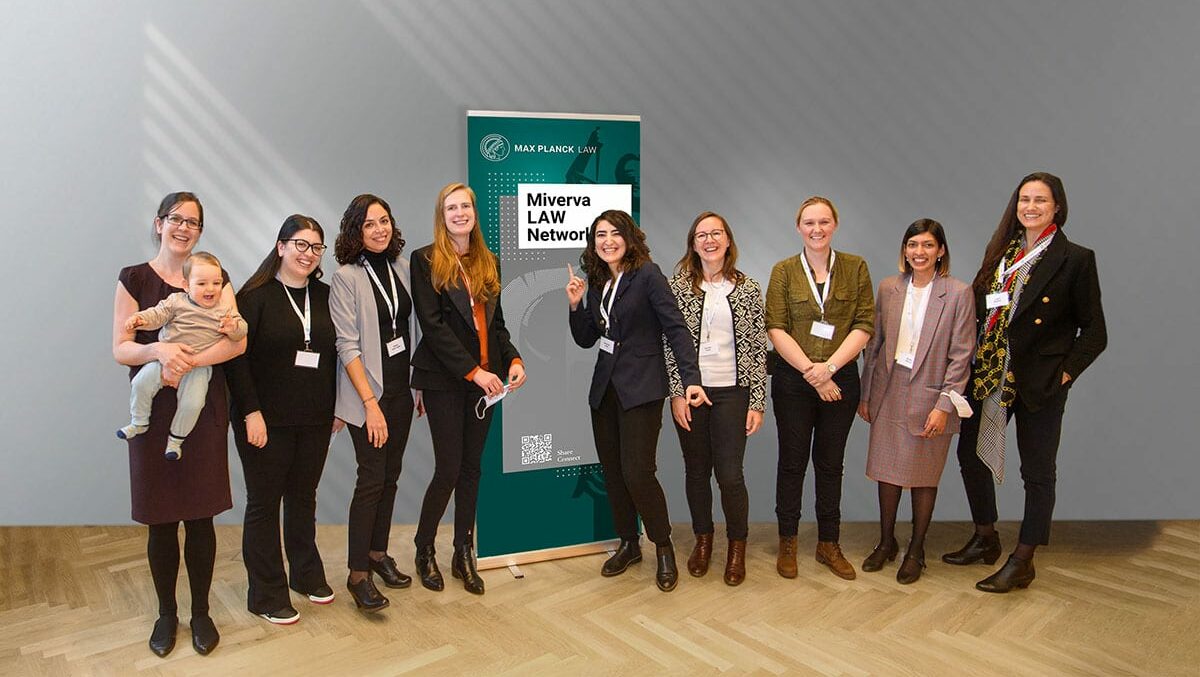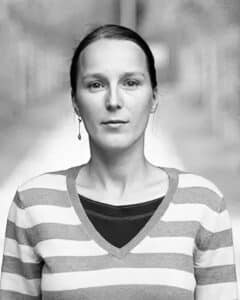Within law schools, there is a growing body of research that can be placed under the rubric of ‘law and diversity’. This research spans a wide spectrum of justice issues relating to race, ethnicity, gender, religion, sexual orientation, age, and other identities. Several Max Planck Law researchers share an interest in this, as will be evident from the selection of their work showcased below. Their goal is to explore how legal frameworks interact with diverse populations and, in many cases, to explore how this knowledge can help mitigate inequalities and discrimination, potentially contributing to a fairer society.
Impacts

6 minMIN
Women and Feminism
Take a recent blog article by Silvia Steininger (Research Fellow), in which Steininger asks whether there was ‘a feminist turn’ in a recent decision of the Court of Justice of the European Union (CJEU). In Case C-621/21, the CJEU recognized women facing domestic violence as a protected social group, qualifying them for refugee status. This landmark decision aligns with international women’s rights conventions and sets a precedent for considering gender-based violence as grounds for asylum. Steininger argues that ‘the decision might be more of a catch-up with human rights standards than a feminist revolution. Yet, it establishes key benchmarks for future applications for international protection’. Applying a feminist critique to this decision leads Steininger to highlight the insurmountable hurdle women face due to the EU’s rejection of asylum applications from outside its borders. Moreover, Steininger argues that this decision should not make us forget that, within the EU itself, domestic violence remains rampant.

Also in a recent journal article, Anne Peters (Director) makes a plea for a feminist foreign relations law. Highlighting Putin’s sexist rhetoric during the Ukraine invasion, Peters argues for the need to make women and disadvantaged groups visible in legal norms, ensure gender-sensitive policies in various areas, and promote equitable global legal frameworks. Integrating feminist perspectives into foreign relations law implies the need for a less sexist and patriarchal (Russian) society. As such, it would be reasonable to speculate that such a society might be less prone to aggression, leading to a more peaceful world.


Turning from feminist jurisprudence to women’s careers in law, the Minerva LAW (Legal and Academic Women’s) Network—a Max Planck Law Initiative (see more below)—was founded to support graduate and early career women researchers given that ‘women in Germany leave legal academia in disproportionate numbers, either during postgraduate research or soon after’. They have published a chapter in an edited collection that provides guidance on how to improve employability and long-term career prospects. It focuses on the ‘efforts undertaken by the Minerva LAW Network to facilitate the career progression of women postgraduates and early career researchers in law schools in Germany’.
Gender and Queer Identity
The right to legal gender recognition has long been advocated for by trans and nonbinary people. In a journal article, co-written by Stefano Osello (Research Fellow) and Ruth Rubio-Marín (University of Seville), the authors investigate the constitutional developments surrounding this right to gender recognition. In their comparative analysis of a number of widely-spread jurisdictions, they delineate four models of gender recognition: ascriptive binary, ascriptive nonbinary, elective binary, and elective nonbinary.
These models are based on whether gender identity is self-determined (elective) or subject to the ‘fulfilment of certain preconditions’ (ascriptive), and whether recognition is confined to binary or includes nonbinary options. The authors conclude that elective nonbinary recognition, as endorsed by the Belgian Constitutional Court, seems ‘to allow, at least in principle, for the highest degree of diversity recognition.’ At the same time, they caution against viewing the vehicle of rights as a panacea, noting its tendency to undermine alterity through a ‘normalizing’ of legal subjectivity.
Queer identity has been explored through the notion of ‘changing families’ in a recently published book by Konrad Duden (alumnus) and Denise Wiedemann (Senior Research Fellow). The concept of ‘family’ in Europe is undergoing significant transformation, reflecting a shift away from traditional models. The conventional image of a family—married, opposite-sex couples with biological children and a male breadwinner—is steadily eroding.
Contributions in the book highlight many of these changes, including those concerning queer families and the complexities involved in the recognition of transgender and non-binary identities, and extending to issues of parentage of these persons. Changing gender roles and greater recognition of children’s rights necessitate rethinking the balance between promoting equality and protecting vulnerable family members.

Ethnic and Cultural Diversity
The Research Group ‘Cultural Diversity in Private Law at the Max Planck Institute for Social Anthropology, headed by Mareike Schmidt, explores cultural and religious diversity in German private law. Projects include an exploration of how cultural and religious diversity is addressed in contract, tort, property, and commercial law, using a mix of socio-legal analysis and traditional legal methods. Another project investigates law’s cultural embeddedness and aims to contribute to the improvement of legal doctrine and practice in respect of the application of contract law in culturally diverse societies.
The joint project, ‘Law and Diversity—Perspectives from Legal History’ at the Max Planck Institute for Legal History and Legal Theory, investigates how modern legal cultures have addressed social differences since the eighteenth century to shed light on why the Enlightenment ideal of equality and universality has never been fully realized. Diversity is understood here ‘as a discourse on the question of which legal responses must be given to which social differences.’ Bearing this in mind, ‘gender and ethnic differences continue to be a legitimate point of departure for legal differentiation’.
Migration and the Refugee
‘The Challenges of Migration, Integration, and Exclusion’ was a three-year research initiative funded by the Max Planck Society and involving six Max Planck Institutes, including a number from the Max Planck Law network. The project emphasized understanding exclusion mechanisms in migration to Europe, particularly Germany, using a multidisciplinary, multi-perspective, and multidimensional approach. It aimed to study exclusion mechanisms, their consequences, and propose alternative pathways to mitigate marginalizing effects of exclusion, focusing on legal status, socio-economic conditions, health, and ‘emotional communities’. Although the project ended in 2020, it produced a number of papers that were subsequently published.
One was a special issue article by Tabea Scharrer (Associate) and Markus Virgil Hoehne (University of Leipzig), which examined the complex social dynamics Somali migrants face in Germany. The article highlights the dual pressures of integration and exclusion that shape their experiences. The authors argue that Somali migrants navigate between maintaining their cultural identity and adapting to German society. This balancing act involves forming strong ethnic networks that provide support and a sense of belonging, while also encountering systemic and social barriers that lead to exclusion.

Another was a journal article by Constantin Hruschka (Senior Researcher) et al, focusing on the effects of legal status on the expectations and integration experiences of Afghan migrants, but with a particular eye on the preconditions and challenges of interdisciplinary research in this area. They found that interdisciplinary and multimethodological research is essential to bring together and synthesize the various dimensions of migration research.

‘Diverse Diversity’
Having seen a selection of the academic research on law and diversity, it would be remiss not to briefly mention the diverse forms of diversity beyond research at Max Planck Law. For example, Zeynep Caglar operates as our DEI Manager, playing a crucial role in fostering a diverse and inclusive environment. There are also a number of Initiatives—researcher-led cooperations and collaborations—where diversity is intrinsic to their focus. And finally, the Max Planck Lawcast features several of our researchers discussing diversity-related subjects.